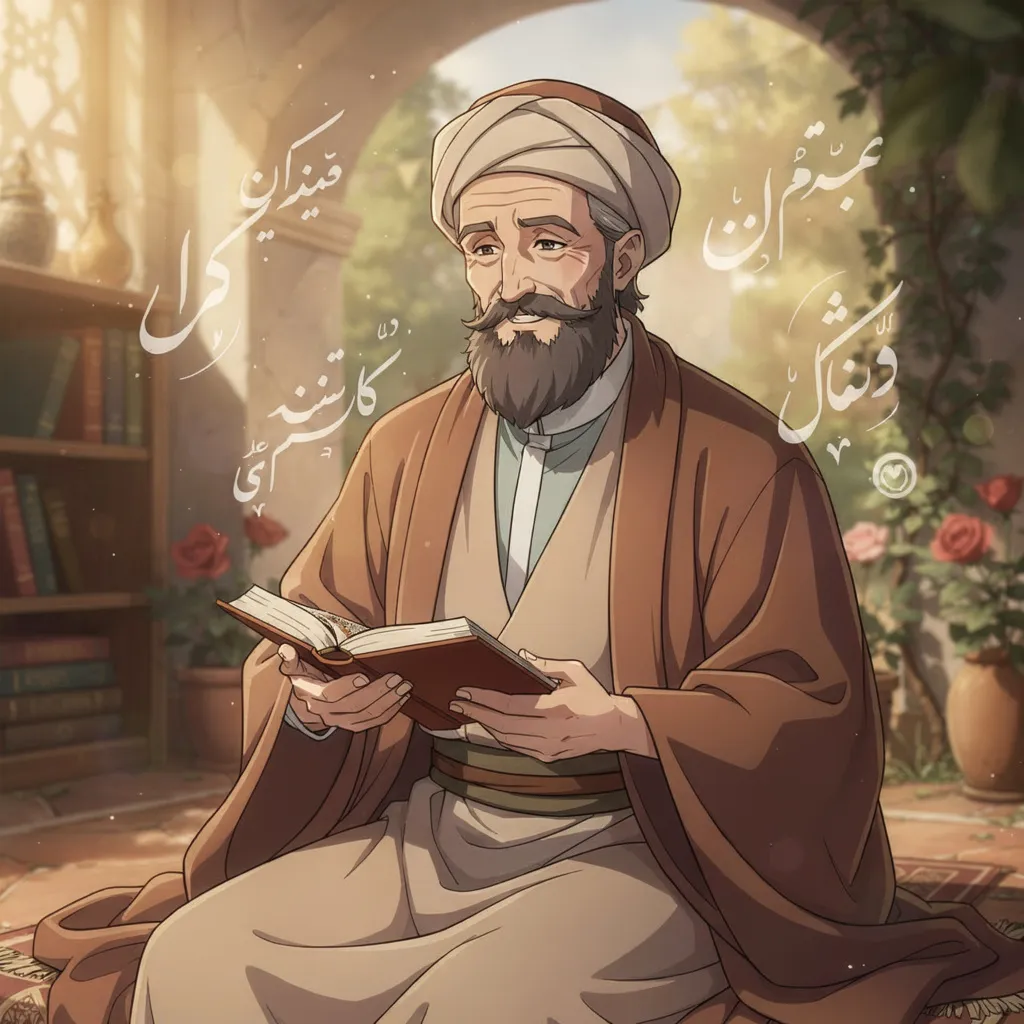
Rumi
1207-1273
A famous poet who wrote beautiful poems about love, kindness, and understanding
Early Life
Rumi’s full name was Jalal ad-Din Muhammad Rumi, but most people call him just Rumi. He was born in 1207 in a town called Balkh, which is in today’s Afghanistan. His family loved learning, and his father was a teacher and religious scholar who shared knowledge with others.
When Rumi was still a child, his family traveled to different places, partly to find safety and good schools during a time of change and conflict. These journeys helped Rumi learn about many cultures and people, which later inspired his writing.
Learning and Teaching
As Rumi grew older, he became a very good student. He studied reading, writing, history, religion, and ideas about how to live a good life. People admired how curious and thoughtful he was.
Rumi later became a teacher himself. He taught students in the city of Konya, in what is now Turkey. Many people came to listen to him because he explained big ideas in a warm and caring way.
Becoming a Poet
Rumi’s life changed when he met a wise friend named Shams of Tabriz. This friendship deeply inspired him and encouraged him to express his feelings through poetry. Rumi discovered that poems were a powerful way to share ideas about love, friendship, and understanding others.
He wrote thousands of poems! Some were short and playful, while others were long and deep. Even though they were written hundreds of years ago, people still read and enjoy them today.
Why His Poems Matter
Rumi’s poems often talk about kindness, peace, and caring for one another. He believed that love could bring people together, even if they were different. This message makes his work special and meaningful.
Many of his poems were shared by students and friends after his death. They were collected into books that are now famous all over the world.
Legacy
Rumi passed away in 1273 in Konya, but his words live on. Today, he is one of the most widely read poets in history. His poems have been translated into many languages.
People still learn from Rumi because his ideas remind us to be kind, curious, and open-hearted. His life shows how words can travel across time and still make people smile and think.
🎉 Fun Facts
Rumi wrote most of his poems in Persian, but they are read all over the world.
Some people enjoy listening to Rumi’s poems as songs or spoken stories.
Rumi’s death anniversary is celebrated in some places with music, poetry, and dancing.
He believed that learning should be joyful, not boring!